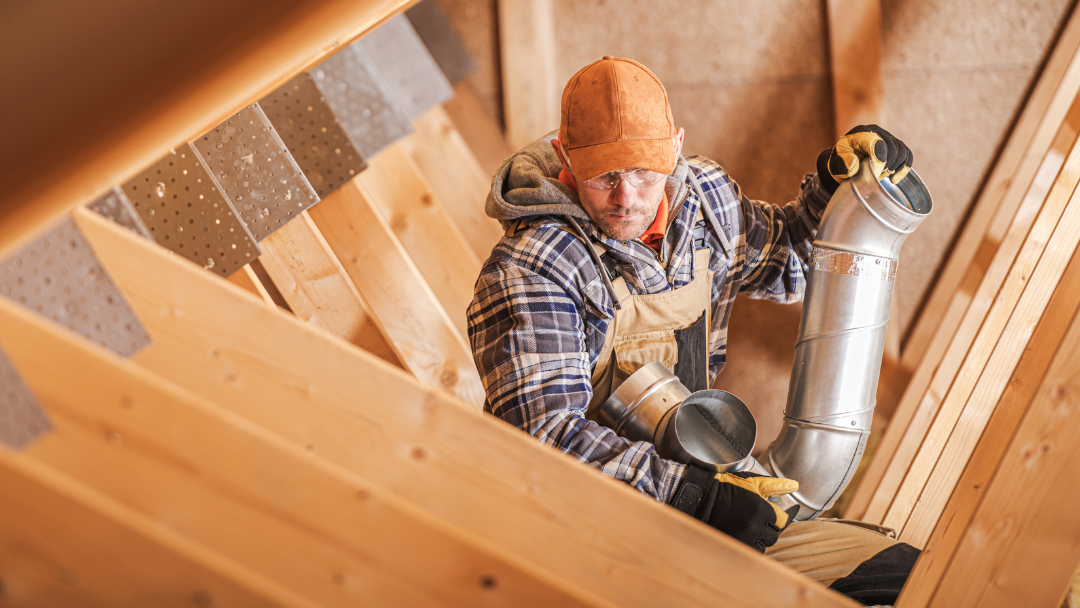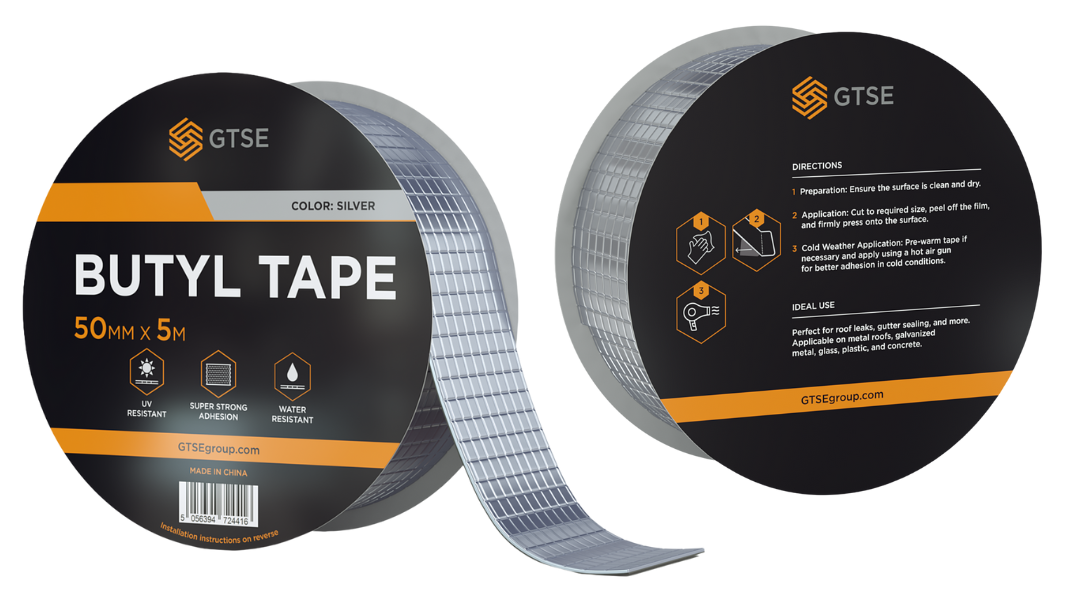Struggling to find a reliable, waterproof seal for your project? Whether it’s for a roofing job, vehicle repair or your next DIY project, butyl tape could be the perfect solution.
Known for its strength, flexibility and durability, this versatile rubber-based adhesive is a great choice for a wide variety of projects. But is it the right choice for you?
If you’re thinking about purchasing butyl tape, you’re in the right place. In this article, we’ll break down everything you need to know about butyl tape, including its pros, cons and common uses, to help you make an informed decision.
How does butyl tape work?
Butyl tape is a pressure-sensitive adhesive (PSA) composed of butyl rubber – a flexible and durable blend of isobutylene and isoprene. This combination creates a strong, elastic and waterproof seal that maintains long-lasting flexibility and tackiness over a wide temperature range.
What is butyl tape used for?
Butyl tape is often used in construction and automotive applications. But that’s not all. This incredibly versatile material is also ideally suited for a variety of household projects. Some of the most common uses include:
- Waterproofing and repairing roofs
- Sealing gaps around windows, doors and vents
- Bonding and sealing materials like metal, wood, plastic and glass in construction and DIY applications
- Gutter and pipe sealing
- Repairing rips, holes or tears in tents, caravans and awnings

What are the advantages of butyl tape?
Butyl tape is considered a superior alternative to traditional sealants and adhesives due to its flexibility, durability and ease of use. A few of its key advantages include:
Excellent waterproofing
The tape is capable of forming a strong, watertight seal – making it a superb choice where moisture resistance is crucial.
Strong adhesion to various surfaces
Whether it’s metal, glass, plastic, wood or concrete, butyl tape sticks well to any dry surface without the need for additional adhesives.
Highly flexible and durable
Some sealants crack or shrink over time. That’s not the case with butyl tape, which remains flexible and accommodates movement and temperature changes without losing its seal.
Long-lasting and weather-resistant
Butyl tape can withstand extremes of temperature ranging from -15°C to 45°C, and is resistant to weathering and UV rays, making it ideal for outdoor applications in the UK.
Super easy to use
You don’t need any special tools to apply butyl tape – it’s as simple as peeling off the backing and pressing it into place for an instant bond. Quick, easy and no mess!

What are the disadvantages of butyl tape?
While it offers a lot of benefits, butyl tape does have some limitations you need to be aware of:
- Not paintable – Butyl tape comes in a choice of colours, typically silver and black. However, if aesthetics are important in your project, you may be better off using something else as it can’t be painted easily.
- Can attract dirt and debris – Due to being very sticky, exposed edges can collect dust, dirt and debris over time, which can affect its seal.
- Difficult to remove – Once applied, butyl tape is often very difficult to remove due to its strong adhesive properties.
Related reading: Repair Tape Buyer’s Guide
How long will butyl tape last?
This will depend on several factors, such as environmental conditions, the quality of the tape you purchase and how you apply it to surfaces. However, in most cases, you can expect your butyl tape to be good for around 20-30 years – or even up to 60 years!
To guarantee long-term durability, we recommend you check the product’s specifications and use butyl tape in conditions suitable for its adhesive properties.
Will butyl tape stick to wet surfaces?
No. While butyl tape is well known for its strong adhesion and waterproof qualities, it’s not designed to stick to wet surfaces effectively. Surfaces often become slippery when wet, which weakens the seal.
To get the best use out of your butyl tape, we recommend always applying it to dry, clean and debris-free surfaces.
Related reading: What’s the Best Tape for Outdoors?
Where can I buy butyl tape?
If you need butyl tape for your next construction job or DIY project, we’re here to help. At GTSE, we stock waterproof silver butyl tape in rolls of 50mm in width and 5m in length. You’ll benefit from free delivery for orders over £75 (plus VAT), plus expert support from the UK’s most trusted consumables supplier.


